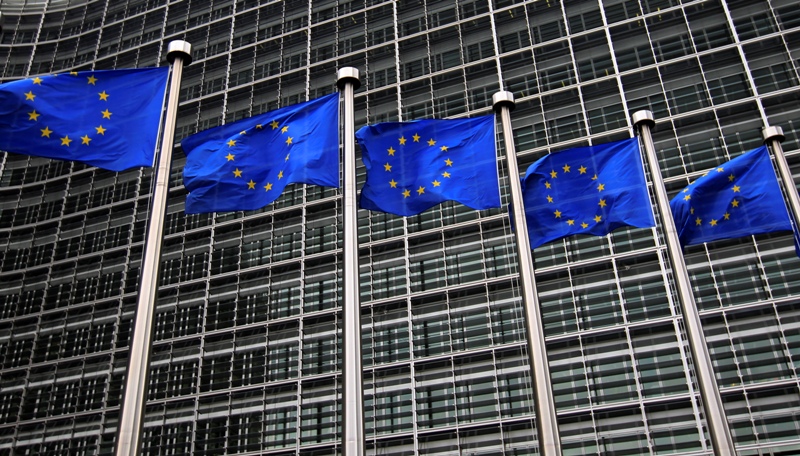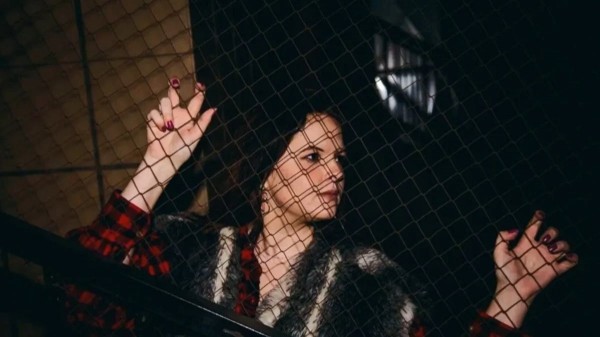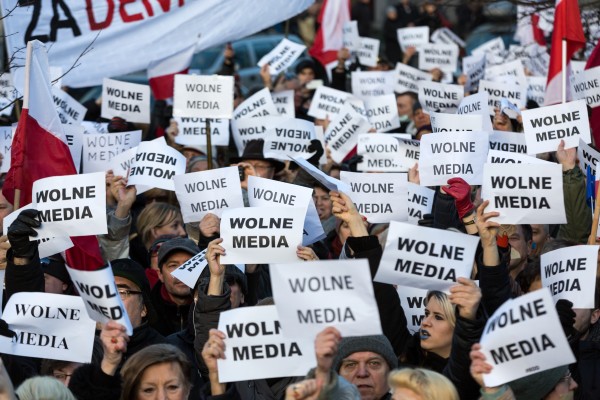The European Commission’s support for projects addressing violations of media freedom and pluralism, and providing practical support to journalists, gives European Union countries reason to celebrate this year on May 3, World Press Freedom Day, media freedom watchdogs said today.
However, new research into defamation law and practice – one of four, one-year projects launched in February under a Commission-funded grant programme focusing on the 28 EU member and five candidate countries – has shed light on one big elephant in the room, the Vienna-based International Press Institute (IPI) said. Preliminary results of a study by IPI and the Center for Media and Communications Studies (CMCS) at Budapest’s Central European University reveal that criminal laws in the EU addressing libel, slander and insult remain rife and, in many cases, contravene international and European standards.
Furthermore, as another project, “Safety Net for European Journalists”, registered, attacks on journalists continue to represent a major challenge to press freedom in Europe. Research and field work by the Osservatorio Balcani e Caucaso, IPI affiliate the South East Europe Media Organisation (SEEMO), Ossigeno per l’Informazione and Dr. Eugenia Siapera of Dublin City University have shown that journalists across Southeast Europe, Turkey and Italy often face common threats and pressure, highlighting a crucial need for transnational support.
“Media freedom and pluralism can unfortunately not be taken for granted in Europe,” Neelie Kroes, vice-president of the European Commission responsible for the Digital Agenda, said. “We all, governments, NGOs, the media, and the EU institutions have a role to play in standing firmly to defend these principles, in Europe and beyond, now and tomorrow, on and off-line. I am interested to see what the outcome of the independent projects will be.”
The European Commission grant programme, the “European Centre for Press and Media Freedom”, is funding two projects in addition to IPI’s project researching the effects of defamation laws on journalism in Europe and raising awareness of the same, and the “Safety Net” project establishing a transnational support network for journalists in Southeast Europe, Turkey and Italy. Index on Censorship has created a project to map media freedom violations, and the Florence-based Centre for Media Pluralism and Media Freedom (CMPF), also working in conjunction with CMCS, is creating tools and networks to strengthen journalism in Europe.
The grantees’ work, combating violations of the fundamental right to press and media freedom, is intended to play a critical role in protecting both the fundamental human right of free expression, as guaranteed by Article 11 of the EU’s Charter of Fundamental Rights, as well as the media’s instrumental role in safeguarding democratic order.
Some of the grantees will also collaborate to establish an intra-European network of legal assistance for media outlets facing legal proceedings.
IPI and CMCS plan to launch a comprehensive report in early June on the status of criminal and civil defamation law in EU member and candidate countries, intended to help identify states where engagement is required most urgently. The report will evaluate each country across a number of categories, including the types of defences and punishments available and the existence of provisions shielding public officials, heads of state, or national symbols from criticism. It will also include a first-of-its-kind “perception index” to gauge the subjective effect that criminal and civil defamation proceedings have on press freedom.
Preliminary research shows that, in nearly all EU member states, libel and insult remain criminal offences punishable with imprisonment – up to five years in some cases – and that journalists continue to face prosecutions in numerous countries, particularly Croatia, Greece, Hungary, Italy, Malta and Portugal. While some countries have seen movement toward decriminalisation, only a small minority of states have fully abolished criminal libel and insult provisions, among them Ireland, Romania and Britain.
A key finding so far is that while national courts in many cases apply European Court of Human Rights precedents on protection of freedom of expression, few EU member states have adopted legislation that meets these standards. This is particularly true with regard to defences available to journalists in libel proceedings. In IPI’s view, the lack of modern legislation clearly establishing defences of truth, public interest, fair comment and honest opinion contributes to an atmosphere of uncertainty and potential self-censorship on matters of public interest.
Additionally, the research so far has shown that legal protections shielding public officials from scrutiny are prevalent in many countries, and that such provisions often are found in tandem with increased punishments for journalists and media outlets that publish content that could be deemed defamatory. The combination of these two instruments – present in the laws of many EU member states – significantly weakens legal safeguards that enable journalists and media outlets to perform their necessary watchdog roles. Such barriers pose undue restrictions on freedom of expression rights and the public’s right to know, as established by international and EU conventions and treaties.
Despite clear challenges, however, the research has also found several important positive movements, including the enactment of modern civil defamation legislation in Ireland in 2009 and in England and Wales in 2013, as well as the full repeal of criminal libel in those jurisdictions. The removal, for the most part, of prison sentences as a punishment for libel in Finland, new discussions among Italian lawmakers to end imprisonment for criminal defamation and the repeal of a French law punishing insults to the president all indicate a growing, if slow, willingness to tackle archaic legislation.



